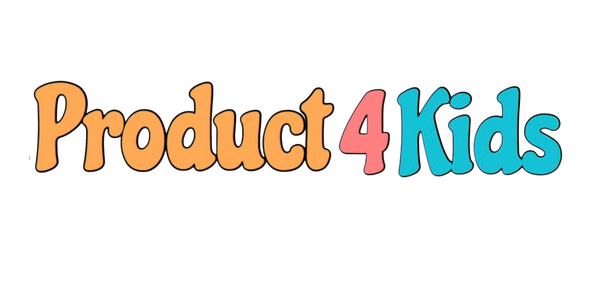Autism is a developmental disorder that affects individuals in various ways, including social interaction, communication, and sensory processing. As parents, caregivers, or loved ones, it's important to provide a nurturing and stimulating environment for autistic children. Toys can play a crucial role in their development by promoting engagement, sensory exploration, and learning. In this article, we will explore the best toys for autistic kids that cater to their unique needs and interests.
Table of Contents
- Introduction: Understanding Autism and the Importance of Toys
- Sensory Toys for Autistic Kids
- Fidget Spinners and Sensory Balls
- Sensory Mats and Tactile Boards
- Weighted Blankets and Vests
- Fine Motor Skill Development Toys
- Building Blocks and Legos
- Puzzles and Shape Sorters
- Art and Craft Supplies
- Pretend Play and Social Interaction Toys
- Dolls and Action Figures
- Play Kitchen Sets and Tools
- Dress-Up Costumes and Accessories
- Educational and Learning Toys
- Interactive Learning Tablets
- STEM Building Kits
- Language and Communication Games
- Outdoor Play and Physical Activity Toys
- Trampolines and Bouncing Balls
- Swings and Climbing Structures
- Sensory Sand and Water Tables
- Conclusion
- FAQs (Frequently Asked Questions)
Introduction: Understanding Autism and the Importance of Toys
Autism, or Autism Spectrum Disorder (ASD), is a neurological condition that affects individuals differently. Autistic children may experience challenges in communication, social interaction, repetitive behaviors, and sensory processing. Toys designed specifically for autistic kids can aid in their development by addressing their unique needs and enhancing their abilities.
Engaging autistic children in play is not just about having fun; it also serves as a therapeutic tool. Toys can help improve motor skills, encourage imaginative play, promote social interaction, and enhance cognitive abilities. By providing the right toys, parents and caregivers can create a positive and inclusive environment that supports the growth and development of autistic children.
Sensory Toys for Autistic Kids
-
Fidget Spinners and Sensory Balls: Fidget spinners and sensory balls provide tactile stimulation and promote focus and relaxation. The repetitive motion of spinning a fidget spinner or squeezing a sensory ball can help autistic children self-regulate and manage anxiety or sensory overload.
-
Sensory Mats and Tactile Boards: Sensory mats and tactile boards offer a variety of textures and materials for tactile exploration. These toys provide a safe and controlled environment for children to engage their sense of touch and improve sensory integration.
-
Weighted Blankets and Vests: Weighted blankets and vests provide deep pressure input, which has a calming effect on the nervous system. The gentle pressure mimics a comforting hug and can help autistic children relax, reduce anxiety, and improve sleep quality.
Fine Motor Skill Development Toys
-
Building Blocks and Legos: Building blocks and Legos promote fine motor skills, spatial awareness, and creativity. Autistic children can develop hand-eye coordination, concentration, and problem-solving abilities while constructing structures and engaging in imaginative play.
-
Puzzles and Shape Sorters: Puzzles and shape sorters enhance cognitive skills, visual perception, and logical thinking. These toys encourage children to analyze shapes, colors, and patterns, improving their problem-solving and fine motor abilities.
-
Art and Craft Supplies: Art and craft supplies, such as crayons, markers, and modeling clay, stimulate creativity and self-expression. Autistic children can explore their artistic side, enhance fine motor skills, and engage in sensory experiences through various textures and materials.
Pretend Play and Social Interaction Toys
-
Dolls and Action Figures: Dolls and action figures facilitate pretend play and encourage social interaction. Autistic children can practice social skills, emotional understanding, and storytelling while engaging with these toys.
-
Play Kitchen Sets and Tools: Play kitchen sets and tools promote imaginative play and role-playing. Autistic children can imitate real-life activities, develop language skills, and practice social interactions through shared play experiences.
-
Dress-Up Costumes and Accessories: Dress-up costumes and accessories encourage creativity and imaginative play. Autistic children can explore different roles, express themselves, and engage in pretend scenarios, promoting social and emotional development.
Educational and Learning Toys
-
Interactive Learning Tablets: Interactive learning tablets offer a wide range of educational games and activities. These toys support language development, cognitive skills, and early learning concepts in a fun and engaging way.
-
STEM Building Kits: STEM (Science, Technology, Engineering, and Mathematics) building kits promote problem-solving, logical thinking, and spatial reasoning. Autistic children can explore scientific concepts, build structures, and engage in hands-on learning.
-
Language and Communication Games: Language and communication games help improve verbal and non-verbal communication skills. These toys encourage turn-taking, listening, and expressive language development in a playful and interactive manner.
Outdoor Play and Physical Activity Toys
-
Trampolines and Bouncing Balls: Trampolines and bouncing balls provide opportunities for physical activity and sensory input. Autistic children can engage in gross motor play, improve coordination, and experience the therapeutic benefits of bouncing and jumping.
-
Swings and Climbing Structures: Swings and climbing structures promote balance, coordination, and body awareness. These toys offer vestibular input and can help autistic children develop core strength and enhance spatial awareness.
-
Sensory Sand and Water Tables: Sensory sand and water tables offer tactile experiences and sensory integration opportunities. Autistic children can explore different textures, pour, scoop, and manipulate materials, promoting sensory development and creativity.
Conclusion
Choosing the right toys for autistic children is essential for their growth, development, and overall well-being. Sensory toys, fine motor skill development toys, pretend play and social interaction toys, educational and learning toys, and outdoor play and physical activity toys all play a significant role in catering to their unique needs. By providing a wide range of toys that engage their senses, promote interaction, and encourage learning, we can create a supportive environment that nurtures their abilities and fosters their development.
